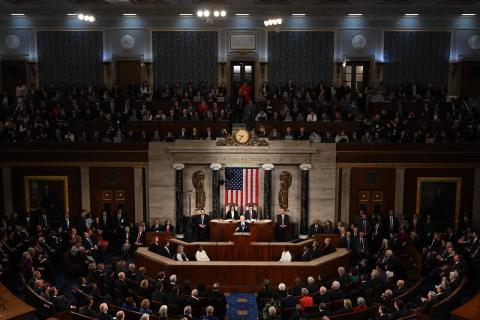Last week came the surprisingly low-key (and flag-free) announcement from Prime Minister Malcolm Turnbull of a review into the agencies that comprise the Australian Intelligence Community (AIC). Freed from the burden of inquiries into intelligence agencies that seek to ascribe fault, this review provides a rare opportunity to ensure the AIC is structured, funded, and skilled to provide the intelligence needed by its customers in elected office, the bureaucracy, and the military.
Unlike the 2011 Independent Review of the Intelligence Community (IRIC), this review is to be co-chaired by an AIC insider – the previous Director of the Australian Signals Directorate (ASD) and Deputy Secretary for Intelligence and Security, Stephen Merchant. Similar reviews and inquiries examining the performance of intelligence agencies, both within Australia and overseas, have often been led by individuals with no background in their nation’s intelligence communities. Given that Merchant’s tenure as deputy secretary included a period that will likely be examined by the review, there will be some interesting conversations where the reviewer and those being reviewed are one and the same.
Compared with the 2011 IRIC, the scope of this new review is somewhat improved. Several years ago I attended a conference at the US Defense Intelligence Agency’s (DIA) headquarters. The rear wall of the auditorium was covered with the seals of the 17 government organisations that were part of the US Intelligence Community (USIC), some of which the public would be unlikely to recognise as having an intelligence function. While the 2011 IRIC limited itself to focusing on the six agencies of the AIC, the terms of reference of the new review have acknowledged the need to examine other commonwealth organisations involved in national security which have intelligence roles.
The terms of reference for the new review are very broad. Others have suggested it should examine cyber security, lone-wolf terrorism, resourcing, and parliamentary oversight. I would add a few other items to this list.
Firstly, with the all-but-confirmed involvement of the ASD in conducting offensive cyber operations, should the ASD’s offensive and defensive capabilities be placed in separate organisations? While the scale is very different, a similar conversation is underway in the US, with the idea that the US military’s Cyber Command (which has command of US military operations in cyberspace) should be split from the intelligence gathering National Security Agency.
Secondly, as the Australian Defence Force (ADF) enters its 16th year of conducting combat operations in the Middle East, are our military commanders there receiving the intelligence support they need to conduct their missions? This would include not just the Canberra-based ADF leadership, whom the AIC are accustomed to providing intelligence to on a more-than-daily basis, but also decision makers at the operational and tactical levels. The new review should also take the opportunity to look beyond the military-focused parts of the AIC (ASD, the Defence Intelligence Organisation, and the Australian Geospatial-Intelligence Organisation) to review the functions and performance of the Army, Navy and Air Force’s own various intelligence collection and analysis elements.
Thirdly, while working relationships with international intelligence partners are important, it's worth investigating if the AIC provides a sufficiently independent source of intelligence to its customers, or are we still largely reliant on information and analysis from our allies? This is of particular importance in areas beyond our region, especially in light of the recent involvement by ADF aircraft in an errant bombing attack conducted by a variety of coalition aircraft in Syria. But it also applies in places closer to Australia such as the South China Sea; an area of heightened tensions involving multiple nations where the ADF already has a military presence and our principal military ally is acting with increasing boldness.
The existing members of the AIC are almost certainly already preparing proof they are changing to meet the new threats of the world, are using their resources efficiently and effectively, and are operating within the prescribed oversight regulations. In an example of extremely coincidental timing, Nick Warner, the Director-General of the Australian Secret Intelligence Service (ASIS), gave only his second-ever public speech recently about how his own organization was already adapting. ‘We are changing already. And what we are changing, pretty much – is everything.’ If the heads of the other agencies are similarly positive, Mr Merchant and his co-chairs should have a rather uneventful review.

